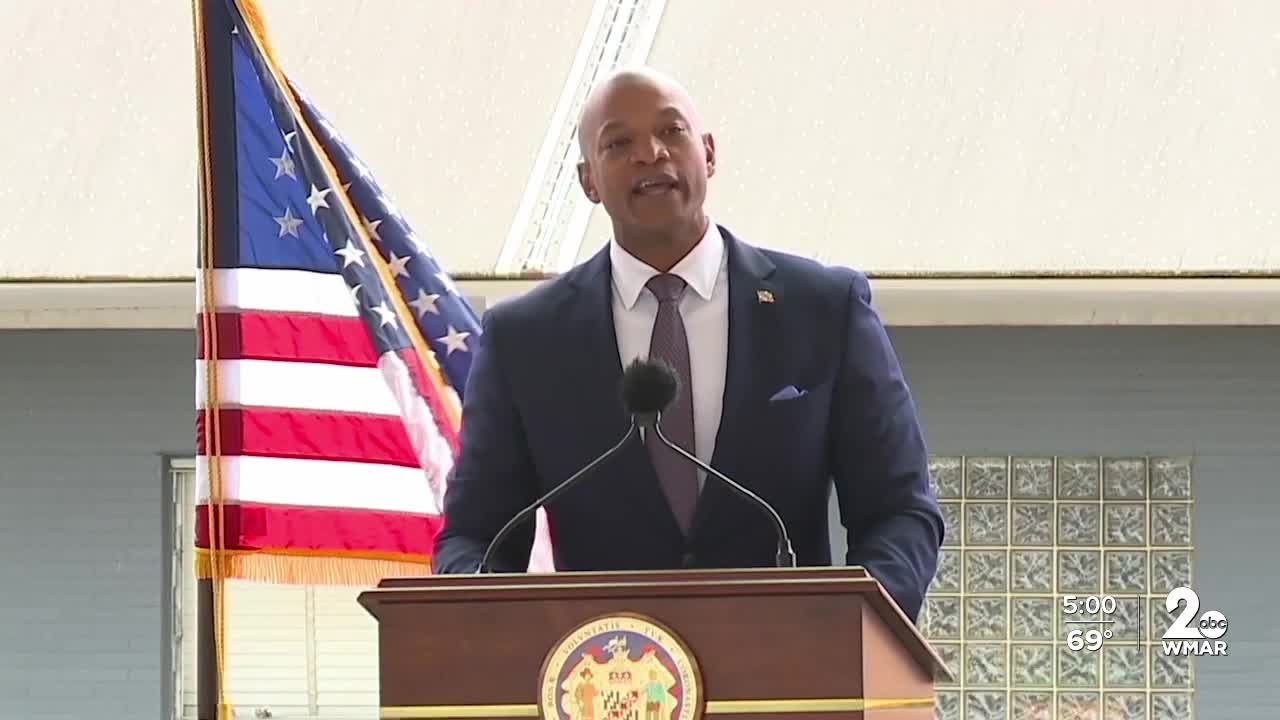Virginia Senate President L. Louise Lucas criticized Maryland Senate President Bill Ferguson, who has opposed the state’s entry into the national fray.

‘Please don’t say our name’ Governor Moore responds to President Trump
“Please keep our name out of your mouth,” Maryland Governor Wes Moore said, referring to President Trump’s recent critical comments about Baltimore.
Scripps News – WMAR Baltimore
President Donald Trump’s redistricting initiative has embroiled two of the most powerful Democratic state legislators in the Washington, D.C., area in a public spat, with Virginia’s outspoken state Senate president slamming Maryland’s senator for not responding to Republican efforts to redraw the congressional map in their favor.
Maryland Senate President Bill Ferguson, who opposes Democratic-controlled states jumping into the national fray, celebrated the party’s successful result on Nov. 4 and said the Democratic victory in Virginia’s governor’s race shows “you don’t have to rig the system to win.”
“Voters will overwhelmingly choose our leadership if we can offer a better vision for the future – real solutions to lower costs, improve services and protect against President Trump,” Ferguson wrote in a post on X.
Virginia Senate President L. Louise Lucas clearly didn’t appreciate Mr. Ferguson joining the Democratic parade, given his efforts to block Maryland Gov. Wes Moore from joining the legislative arms race.
Lucas, a known outspoken lawmaker, responded directly to Ferguson in a Nov. 5 Post
“Pair up and stand up to this president,” she added. “This is just embarrassing.”
Lucas’ criticism represents a rare public party brawl across state lines in the Washington, D.C., area, but it shows how important changing the congressional map has become for Democrats heading into the 2026 midterm elections.
Earlier this year, the Trump administration began arm-twisting Republican-led states to redraw their borders to maintain control of the U.S. House of Representatives. Several Republican-controlled states have taken steps to add even more Republican-leaning seats beyond the already favorable maps approved at the beginning of the decade (as is customary). It started with Texas, drawing a new map that could give Republicans up to five seats.
Missouri signed new maps that could add Republican seats. The North Carolina race was expected to squeeze one House Democrat out of a congressional caucus that is already heavily tilted toward Republicans. The Indiana General Assembly has set a date for next month to consider redistricting.
Moore enters redistricting battle over opposition from Maryland state legislators
Democrats are fighting back, with some blue states drawing new lines to level the playing field across the country.
California has approved Proposition 50, a ballot initiative led by Democratic Gov. Gavin Newsom, temporarily suspending the use of bipartisan commissions to draw congressional district lines. The bill passed with approximately 64% in favor and 36% against. Democrats hope to gain up to five seats in the Golden State to offset losses in Texas.
Now, other blue states are hoping to follow suit, including Virginia, which passed a new map that would add three new Democratic-leaning seats if voters approve a constitutional amendment.
But in neighboring Maryland, Moore and other leaders ran into a roadblock when Mr. Ferguson opposed a plan that would give all eight of the state’s seats to Democrats. All but one of Maryland’s congressional districts are currently held by Democrats.
Mr. Ferguson’s spokesman, David Schulein, expressed skepticism about the plan, saying a court would likely invalidate the new map.
Despite these concerns, Maryland Gov. Wes Moore this month created a new advisory committee to consider drawing new congressional maps. The plan is backed by national Democratic figures, including former U.S. Attorney General Eric Holder.
“I’ve been clear from day one: If other states are determining whether they have fair maps, so is Maryland,” Moore said in a Nov. 4 video announcing the move.
Mr. Ferguson responded on X that the state Senate is open to a public participation process regarding redistricting.
“If the purpose of the committee is to hear directly from Marylanders, the Senate will engage in a process that includes in-person listening sessions in each of Maryland’s eight existing congressional districts,” he said. “The voices of Marylanders will continue to be central to this process, and these public meetings will give voters an opportunity to hear about Maryland-specific legal barriers that could inadvertently give Donald Trump an additional seat or two in the Maryland General Assembly if this effort backfires in court.”
This article has been updated with additional information.
Contributor: Sarah D. Wire, Terry Collins

